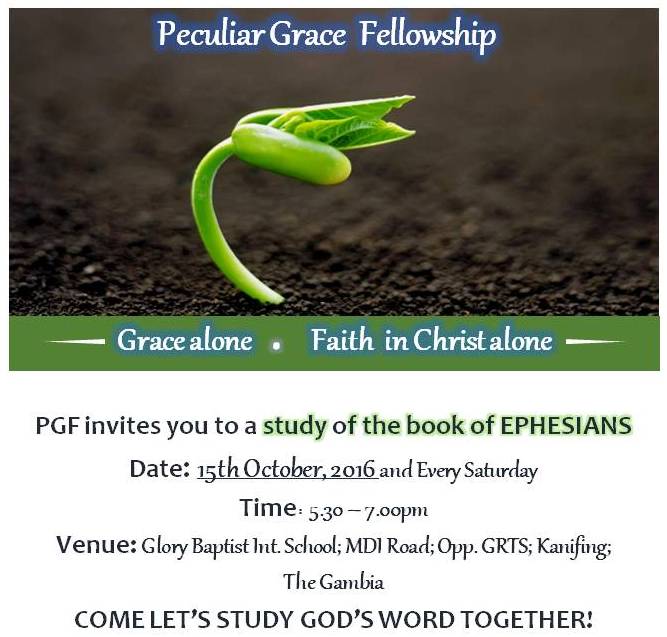
Introduction
In Part 1 of this series, we saw from the first two sections of Obadiah how God stands against all of our hurt, even when we lack faith that things will turn around for good. In this article, we turn our attention to the book’s third section, where we encounter a life-giving conclusion.
God will destroy evil and restore good (15-21)
We long for everyone to be saved. But we also know that on the last day, there will be those who have not turned back to God. We know that there will be cruel and oppressive people, rulers, and nations among them. Our gospel is not just” “Save me”; it is also “Restore justice in this world.” The destruction of evil is not something that individuals can take on by themselves. It is the role of duly appointed authorities and, ultimately, God himself.
But the message for Israel here is that, in the great reversal that this book is all about (see Part 1), God will not only restore justice: he will use his people—small and broken as they are—to do it.
What does restoring justice look like? It looks like judging evil (vv.15-18), restoring the possessions that have been taken from God’s people (v.17), restoring justice to the world (“rule” in v.21 as translated in the ESV is “judge” in the KJV – implying rule with justice), and allowing God’s people to worship him (Mount Zion will be holy, v.17). It is a comprehensive picture of evil rooted out and good restored. Our prayers are not just, “Fix me. Save me”; they are also, “Use me to restore this world”.
Part of this goes back specifically to Edom. Healing the damage they have done means knowing that God will not tolerate evil. But the focus has changed. The focus is now on the scattered people of God, called simply, “The exiles of this host of Israel” (v.20). It is as if God is pointing to a time when, with mud-stained faces, he will call them to pick up their few possessions and march as one from the land of exile back home, individually feeling like vagabonds, but together a mighty army. And, for the many who will not see that day, it is God calling them to keep the torch of hope burning for one more day, to keep it alive and pass it on.
This is not naïve triumphalism. God knows that these are still exiles, most of whom will never see their homeland again. For them, to keep going, to refuse to give up because they are looking ahead to the day of God’s glory, is triumph. Which brings us to the last verse.
It is tempting to see it as not fitting with the rest: “The kingdom will be the Lord’s”. The kingdom has not been mentioned so far. The fact that it will one day belong to God seems like scant comfort to a people who are right now crushed under the heel of whoever feels like abusing them. That’s nice for God but we’re suffering here!
But what if we trust that this verse is part of the rest of the book, that it is written with the same pastoral love and intensity as all that comes before? Then what we see is this: that God so identifies with his people that he will declare the kingdom to be his when and only when their hurts have been healed, their oppressors dethroned, their possessions returned, and justice and worship restored. Our gospel is not, “Heaven will be great, so stop complaining now”. Our gospel is, “God sees, and he cares, and he will address every hurt and restore every loss. And only when he has done that will he declare his work complete”.
What will that mean for someone who has spent years grieving the loss of a loved one? What does that mean for someone who has silently endured years of pain within a relationship? I don’t know, I’m not God. But I know that the New Creation will be more than the absence of pain. In some way that we can’t understand, God will undo hurt, restore what was lost. And, even, that we will be part of making that happen.
Why is all this important? Sometimes, we are not merely picking our battles. Sometimes we have given up or given in when we know we shouldn’t have. We have let our morale be crushed. Do not mishear me: the whole point of Obadiah is that some blows, while not especially heavy, sap our will to carry on. But the call is to raise our eyes to the God of the gospel and to continue.
But sometimes also, the challenge is not to fight. Those to whom this letter was addressed were not called to arms or even peaceful protest. The call was to pass the torch, burning in the darkness, to the next generation and the next, to those who would eventually set the world on fire with the gospel. If ours is not the generation to witness the culture won for Christ, let us still continue to write and to teach and to speak and to blog and to live lives that show the gospel to our generation, whether or not they have ears to hear.
Pastorally, we must recognise that spiritual discouragement is a real issue, just as damaging as all sorts of more obvious and visible problems. God thinks that it is worth dedicating a book of the Bible to it. We need to meet discouraged people with love and care, and never a thin veil of sympathy over an attitude that is really just telling them to pull themselves together.
And for those who are truly downcast, what for you? Believe this gospel. Even if you only have strength to believe it for one more day, believe it. More than that, trust the God of this gospel. There is a fire in this God, a fire that burns for us. It was not just your sin but every hurt in your life that sent his son to the cross. I cannot tell you how or when or what it will look like, but I can tell you this: he will not call his kingdom complete until he has restored every wrong and healed every hurt!


